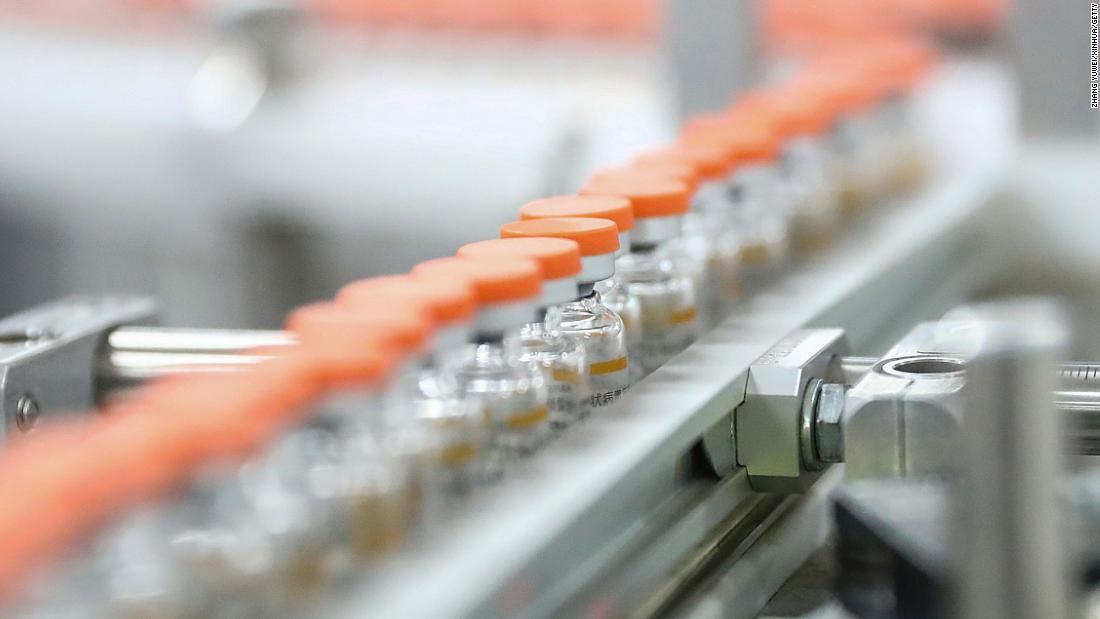Analysts said the rate of effectiveness of Sinovac’s Coronavac vaccine in Brazil – the lowest of its global competitors – could affect international confidence in Chinese vaccines and hamper Beijing’s efforts to repair its image since the mishandling of the initial outbreak, providing Covid-19 vaccines to developing countries.
“The Butantan Institute and the Government of São Paulo report that the coronavirus vaccine reached an overall efficacy rate of 50.38% in the clinical study conducted in Brazil, in addition to (an efficacy rate of) 78% for mild and 100% for moderate and severe cases of Covid-19. All rates are higher than the level of 50% required by WHO (World Health Organization) “, said the statement released Tuesday.
The thin margin for regulatory approval should cause concern among scientists, as last week the Butantan Institute released partial results of “clinical effectiveness” celebrating 78% to 100% effectiveness in preventing infections.
The state agency financed the vaccine’s phase 3 tests, which involved 13,000 health professionals in eight Brazilian states.
“Regarding the overall effectiveness of the analysis, we met the requirements of the World Health Organization with 50.38%,” said Ricardo Palacios, medical director of clinical research at the Butantan biomedical center in São Paulo, at a news conference.
However, on Tuesday, senior officials from the Ministry of Health of Brazil told affiliate CNN CNN Brasil that “effectiveness is borderline”, and that because “It’s at the limit. We have to wait for ANVISA (National Health Surveillance Agency) Evaluate.”
A Sinovac representative said the company is discussing the result, but declined to comment. The final rate of vaccine effectiveness will be determined by China’s drug regulator, the National Medical Production Administration, according to the representative.
Possible obstacle
Yanzhong Huang, a senior global health researcher at the United States Council on Foreign Relations, described the 50.38% effectiveness of the Sinovac vaccine as a “disappointing” result that took him by surprise.
The results suggest that Coronavac is less effective than the alternative vaccines developed by Pfizer-BioNTech and Moderna, which have an efficacy rate of around 95%.
Russia says its Sputnik V vaccine is 91% effective, while the UK vaccine, developed by Oxford University and AstraZeneca, has an average effectiveness of 70%.
Despite worse-than-expected results, Huang said the Sinovac vaccine would still be “usable”, helping to ease pressures on health systems and at the same time reduce potential deaths, given its greater effectiveness for moderate and severe cases that would require medical treatment.
However, its low overall effectiveness could hamper Sinovac’s ability to expand its share of the global market, said Huang.
Sinovac has signed agreements to supply 46 million doses of its Covid-19 vaccine to Brazil, 50 million doses to Turkey and 7.5 million doses to Hong Kong. It will also supply 40 million doses of the vaccine in bulk – the vaccine concentrate before being divided into bottles – to Indonesia for local production.
“Since many countries are planning to order, or have already applied for, Sinovac vaccines, this may undermine people’s willingness to take them, because people may question the usefulness of the vaccines,” said Huang. “It could be a potential obstacle.”
Lack of Transparency
Both Sinovac and Sinopharm have faced doubts about data disclosure. In announcing its effectiveness results, state-owned Sinopharm did not provide details on data from its clinical trials. A Sinopharm executive said that detailed data would be released later and published in scientific journals, without providing a timeline.
There is also the issue of discrepancy in the results of clinical trials conducted in different locations.
Having largely eliminated the coronavirus within its borders at the beginning of last year, Chinese pharmaceutical companies had to look for places abroad to test the effectiveness of their vaccines. But the results reported so far are far from consistent.
The Sinopharm’s effectiveness rate of 79%, for example, is lower than the 86% announced by the United Arab Emirates for the same vaccine in December.
Last week, the Brazilian health regulatory agency, ANVISA, told the Butantan Institute that, in order to approve the emergency use of a vaccine, the global efficacy rate should be publicly disclosed – information that the Institute did not receive at the time of Sinovac, according to CNN Brasil sources.
ANVISA will meet on Sunday to decide on two requests for emergency use of the Coronavac vaccine and the AstraZeneca vaccine from the University of Oxford.
Domestic expectations
The news could also disrupt China’s own coronavirus vaccination campaign, Huang warned.
China has inoculated tens of thousands of people with the Sinovac vaccine since July, according to a government-approved emergency use program that includes at least three Chinese vaccine candidates.
Chinese public health experts have repeatedly told the public that they are confident that Chinese vaccines are at least as good as, if not better than, foreign alternatives, Huang said.
“If people know this, they can start to question the safety and effectiveness of the Sinovac vaccine, or even other Chinese vaccines,” said Huang. “I think the government will need to do some convincing work, either on those who have already shot or are about to do so.”
